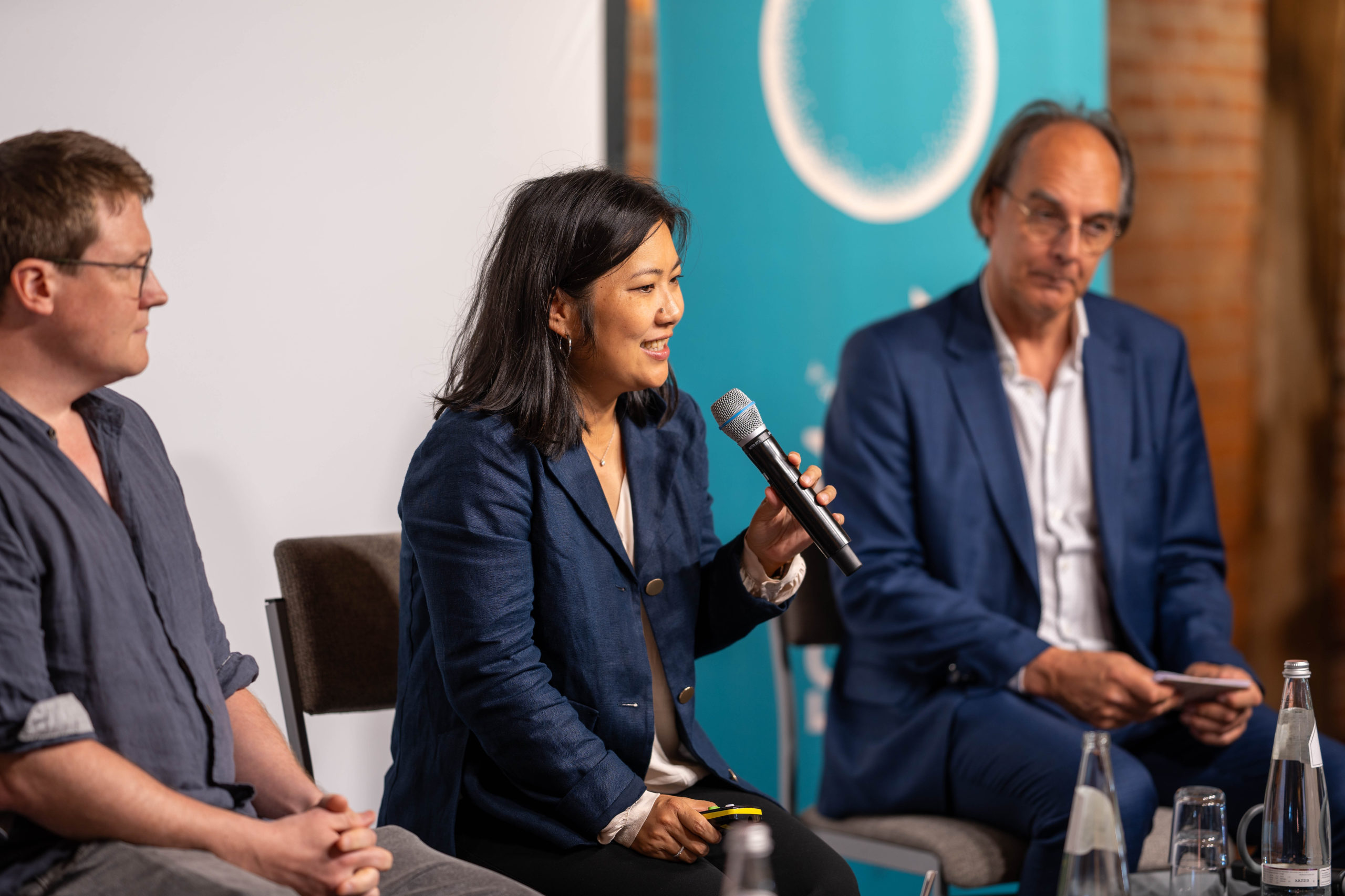NEW PARADIGM
The Berlin Summit 2025: From trade war to a new cooperative global governance?
Industrial policies have become a cornerstone of global economic strategy. How to pursue legitimate national policies without trade wars or arbitrary measures? This panel from the Berlin Summit 2025 discussed how to shift toward a more coordinated, cooperative global framework.
BY
DAVID KLÄFFLINGPUBLISHED
19. JUNE 2025READING TIME
5 MIN
Instead of dreaming of the old times, getting back to the before-2015 free trade world, it may be sensible to find a new compromise and something which is coordinated.
Industrial policy has re-emerged as a cornerstone of global economic strategy, reversing decades of market-led orthodoxy. Advanced economies are now pursuing more interventionist policies—through subsidies, local content rules, and industrial plans—to address strategic vulnerabilities, especially in semiconductors, clean energy, and critical supply chains. This shift has been driven by geopolitical tensions, climate imperatives and national security considerations.
Thomas Fricke, Forum New Economy, kicked off the debate with a short presentation of a discussion note on the question at hand, written by Jonas Nahm, John-Hopkins University: How can legitimate national policies be framed in an internationally cooperative setting that avoids trade wars or arbitrary measures?
While industrial policies promise innovation and resilience, they risk deepening global economic fragmentation. Wealthy nations’ turn to state-led approaches often clashes with their prior free-market advocacy, creating legitimacy challenges and exposing double standards. Developing economies, for instance, face legal constraints for deploying the same industrial tools—such as Indonesia’s nickel export policy—even when these align with national development goals.
A key challenge is balancing national strategic interests with global coordination. Unilateral industrial policies can lead to subsidy races, distort markets, and exclude the Global South. Jonas Nahm argues for a new global framework emphasizing transparency, non-discrimination, and performance-based support, tailored to countries’ development levels. Industrial policy should foster competition, productivity, and sustainable integration into value chains—not shield inefficiencies.
Rather than suppressing industrial policy, coordination mechanisms should distinguish between beneficial and harmful interventions, encourage consultation over conflict, and support green and inclusive growth. Success lies in aligning domestic objectives with international cooperation to foster shared prosperity and technological progress.
Nancy Qian, Northwestern University, emphasized that while industrial policy is not new, the stakes and strategies are different today. She called for smarter design, particularly upstream targeting and support for value chain development in poorer economies.
We’re not reinventing the wheel here… we’re just looking at what’s already been happening—maybe with a new framework, maybe with some new words, with a new discussion.
Guy Lalanne, OECD, warned of the risks of opacity and unchecked subsidy races. He stressed the need for better transparency and evidence to avoid distortion and foster international learning.
Industrial policies are no longer a quiet practice. They are implemented much more openly and their very nature is shifting… But this comes obviously with risks.
Thiemo Fetzer, University of Warwick, focused on building the technical and institutional capacity for cooperation—especially through better data, AI, and service trade integration in climate policy.
Let’s try to make it more technocratic… Let’s look at data. Let’s try to find modes of exchanging information that do not threaten domestic business models.
The panelists agreed that industrial policy is here to stay – but if left unchecked, it could deepen global divides. Instead, they proposed a pragmatic way forward: improve definitions, build transparency, promote fair value chain integration, and create platforms for evidence-based cooperation.

